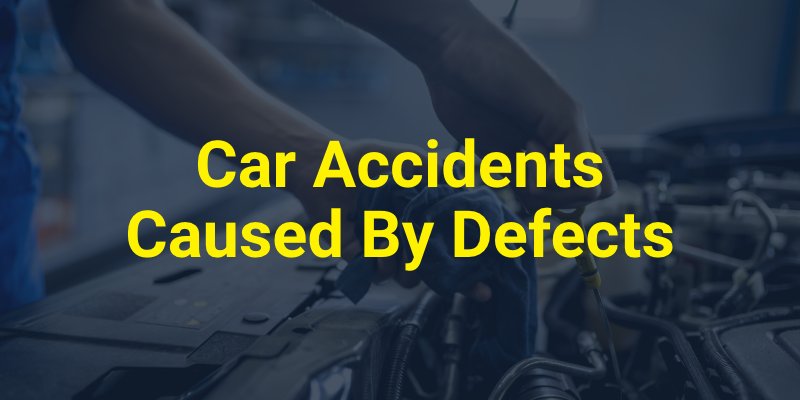When a car accident occurs due to an auto defect, determining liability can become complex. In these instances, identifying the responsible party is crucial for injured victims seeking compensation. It’s also helpful to understand what exactly auto defects are and how to avoid them when purchasing a car in Arizona.

Auto defects can play a significant role in vehicle safety and can result in serious accidents when they lead to malfunctions. Understanding the different types of auto defects is helpful for identifying liability and pursuing compensation if you’re injured due to these issues. The three primary categories include:
Design defects are flaws that exist in the product’s overall design, rendering it inherently unsafe even before manufacturing begins. For example, a car that has a faulty fuel tank design, making it prone to leaking and catching fire during rear-end collisions.
Manufacturing defects occur during the production process where an error results in a vehicle not conforming to its intended design specifications. This could include improper assembly that affects critical components like brakes, seatbelts, or steering systems. For instance, using incorrect materials can compromise safety features and lead to accidents.
Advertising challenges arise when a company fails to provide adequate warnings about potential hazards associated with their products or does not give sufficient instructions regarding safe usage.
Determining liability in auto defect accidents involves analyzing various parties who may share responsibility for the vehicle’s malfunction. Here are the primary parties that could be liable:
Vehicle Manufacturers: Primarily, manufacturers hold significant liability when a design or manufacturing defect leads to an accident. If a flaw exists in their product that makes it unsafe for consumers, they can face serious legal repercussions.
Parts Suppliers: Sometimes, specific components supplied by third parties can cause defects when those parts fail to conform to safety standards or are manufactured incorrectly. In such cases, these suppliers might bear part of the responsibility.
Repair Shops and Technicians: When repair shops fail to fix known problems or conduct negligent work during repairs, they may also be liable if their actions contribute to an accident.
Other Drivers: Other drivers may share liability in some situations. If their actions – such as distracted driving or operating a vehicle recklessly – contribute to an accident involving a defective vehicle or part, they could be held responsible regardless of the auto defect.
Understanding who can be held liable in cases of auto defect accidents is critical for injured victims seeking justice and compensation.
After experiencing an accident, enlisting the assistance of a car accident attorney in Mesa can make all the difference in your recovery and legal claim. Here’s how they can help you:
Expert Legal Guidance: An experienced personal injury lawyer understands the complexities of accident law and product liability law, so they can provide you with the advice you need. They will clarify your rights, explain potential avenues for compensation, and help you navigate all legal challenges.
Evidence Collection: Lawyers have access to resources that allow them to gather essential evidence relevant to your case. This may include police reports, medical records, witness statements, or expert opinions – all critical elements needed for building a strong case.
Negotiation Skills: Many accidents result in negotiations with insurance companies. A skilled lawyer knows how these companies operate and is skilled at negotiating on behalf of clients, ensuring they receive fair compensation reflective of their injuries and losses rather than accepting initial low offers.
If you’ve been involved in an accident, don’t navigate this situation alone. Contact Hastings & Hastings to discuss your case during a free consultation.